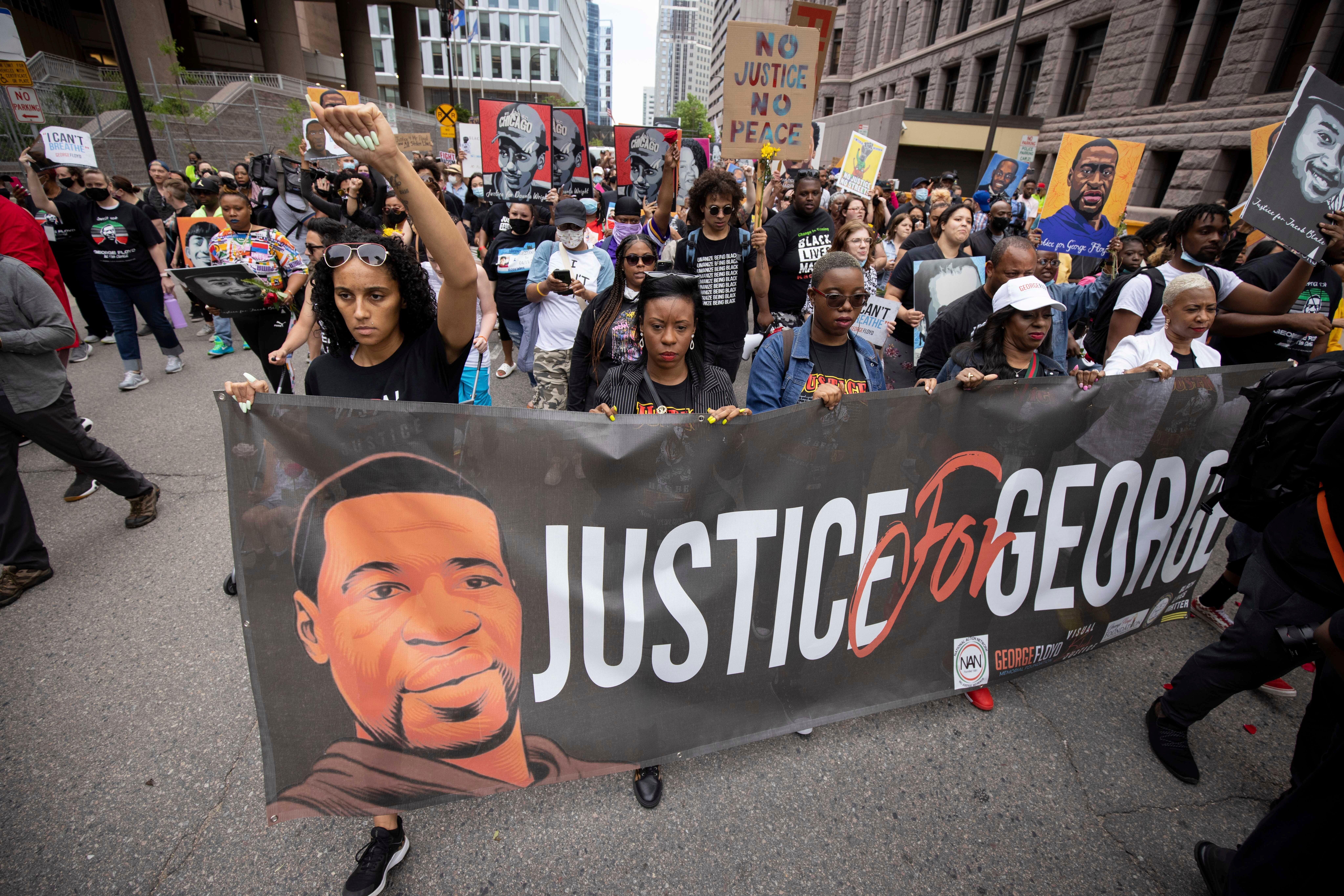There is still much work to be done when it comes to achieving racial equality
Editorial: One year on from the murder of George Floyd, progress is too slow – and frequently painful

A year after George Floyd was murdered by a police officer in Minneapolis, the reverberations are still being felt around the world.
The African American’s death provoked an extraordinary reaction around the world, a reckoning around race. In the UK, the Black Lives Matter movement was at the forefront. What has been striking about that movement is that it has not been an exclusive, or exclusivist, one and the principle it represents is universal in its appeal, or should be.
Awareness of historical injustices is greater now than it was before, and the symbols and attitudes of a cruel racist past have been – and continue to be – challenged. Some have been torn down. This is not about cancel culture or rewriting history; rather it is acknowledging uncomfortable and inconvenient truths about the past. Imperialism; slavery; massacres: these are not episodes that can be looked on with an air of detachment.
So statues have fallen, but not so much the institutional racism they symbolised, and the continuing prejudice many have to deal with in their lives. Not enough has changed. Donald Trump, to whom justice appears an an alien concept, has gone, but in America it cannot be said that the views and prejudices he embodied and emboldened have been swept away – as the insurgency of 6 January showed. Even as the administration of president Joe Biden and vice president Kamala Harris prepares to revisit and bolster civil rights that a past generation thought had been won back in the 1960s, some state legislatures are preparing laws aimed squarely at suppressing the vote – which will disproportionately affect black voters.
A country where elected representatives are prepared to do such things is one still sick with the plague of racism. Removing flags and statues from parks and state houses – the symbols of historical racial injustice – seems to be easier than protecting the rights that can help secure racial justice in the future.
In Britain, the response of the government to the outrage on the streets was to commission report that came to the widely criticised conclusion that although racial injustice still exists, Britain was “not an institutionally racist country”. For as long as there are people leading Britain who believe that racial discrimination is mainly a thing of the past and that Britain “is a beacon to Europe and the rest of the world” then nothing will be done about race equality. Black lives are too often marred, disproportionately, by violence, and the shooting of the Black Lives Matter activist Sasha Johnson is a poignant reminder of that, on this anniversary.
At the moving and dignified ceremonies to mark the anniversary of Mr Floyd’s murder, the Reverend Al Sharpton declared that “George Floyd should not go down in history as someone with a knee on his neck, but as someone who broke the chain of police brutality and illegality”. That is right, but the depressing fact remains that those binds, running as they do across the world, still blight too many lives.



Join our commenting forum
Join thought-provoking conversations, follow other Independent readers and see their replies
Comments